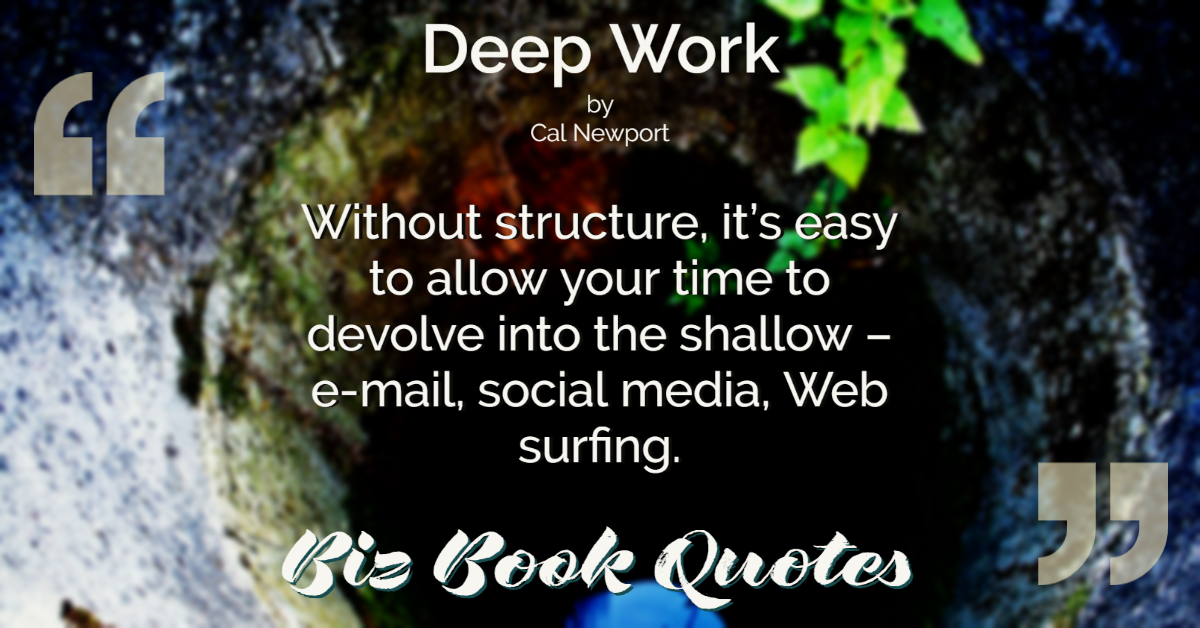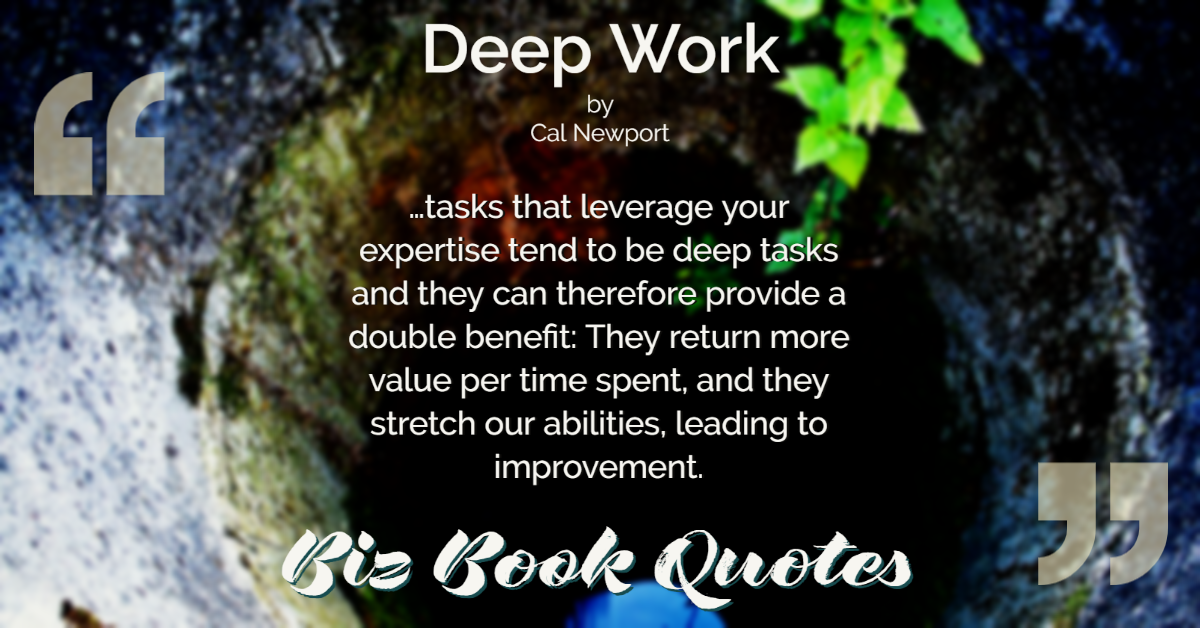 |
The shallow work that increasingly dominates the time and attention of knowledge workers is less vital than it often seems in the moment.
|
218 |
 |
…if you not only eliminate shallow work, but also replace this recovered time with more of the deep alternative… [the business] can become more successful.
|
218 |
 |
…once you’ve hit your deep work limit in a given day, you’ll experience diminishing rewards if you try to cram in more.
|
220 |
 |
…the typical knowledge workday is more easily fragmented than many suspect.
|
221 |
 |
We spend much of our day on autopilot – not giving much thought to what we’re doing with our time. This is a problem.
|
222 |
 |
Without structure, it’s easy to allow your time to devolve into the shallow – e-mail, social media, Web surfing.
|
227 |
 |
Decide in advance what you’re going to do with every minute of your workday.
|
227 |
 |
…tasks that leverage your expertise tend to be deep tasks and they can therefore provide a double benefit: They return more value per time spent, and they stretch our abilities, leading to improvement.
|
231 |
 |
The notion that all messages, regardless of purpose or sender,… deserve a (timely) response, is absurdly unproductive.
|
247 |
 |
If you’re in a position to do so, consider sender filters as a way of reclaiming some control over your time and attention.
|
248 |